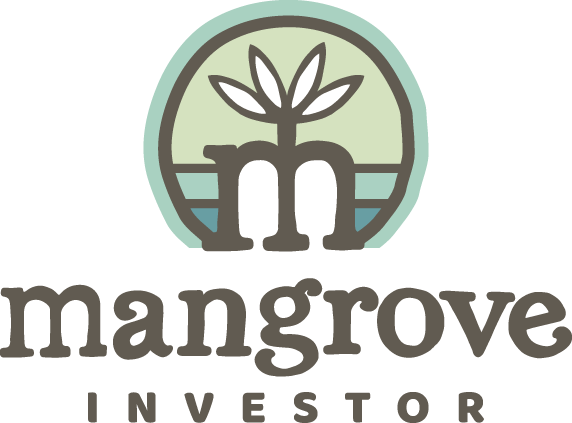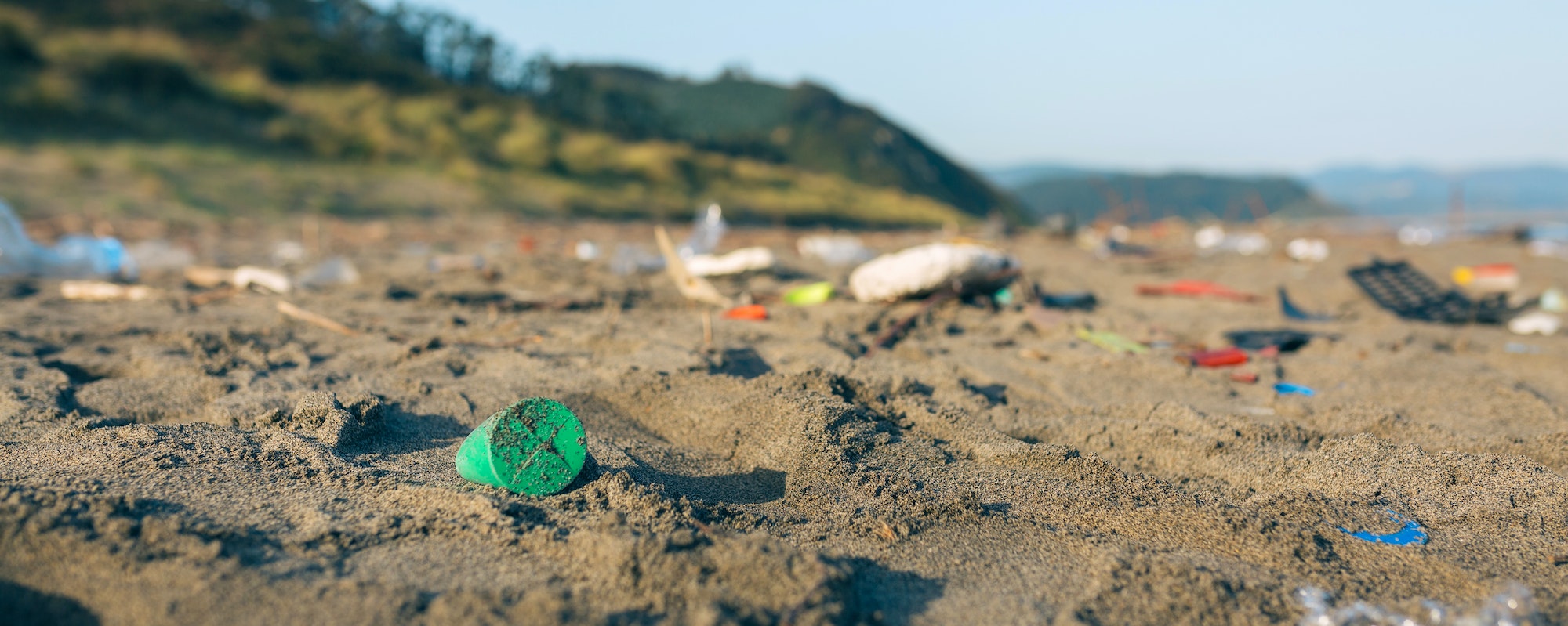

It does not belong
I live on a small barrier island in Northeast Florida
The beaches are beautiful. I spend a lot of time there and at first glance, the beach is pristine. You would never think there is an ocean plastic problem!
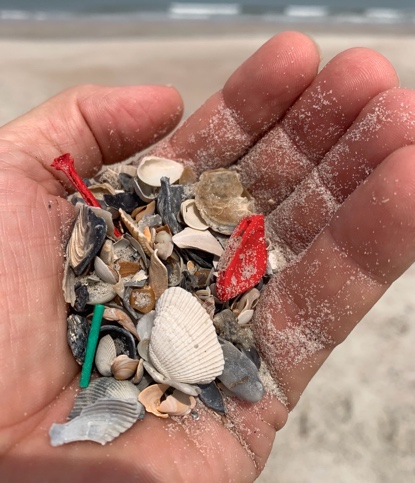
But if you take a close look, you will find that the beach is not as clean as it appears. Grab a handful of sand at the tide line and odds are you will see small, colorful specs that are not natural.
It’s microplastic and it does not belong.
Microplastics arrives on our beaches from many sources. While some microplastic begin as larger plastic pieces that break down over time into smaller and smaller pieces. But there are other sources, such as microbeads, which start small. Microbeads are added as exfoliants to several products, such as cosmetics and even toothpaste. These tiny pieces of plastic easily pass through filter systems and end up in the ocean.
Even the surfing industry (which should be an ocean advocate) is a contributor to the problem. Every summer, tourists flock to the beach for vacation. On the way to the beach, they buy body boards, floats and surfboards. Unfortunately, many of the cheap versions use polystyrene (also known by the brand name of Styrofoam from Dow Chemical Company).
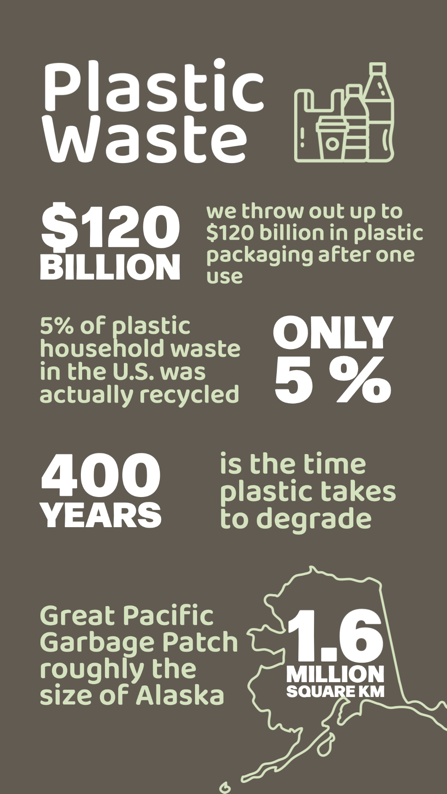
The foam boards break very easily. If you have ever broken a polystyrene cooler, you can understand the problem. It explodes into a mess of small polystyrene balls.
At the beach, they float away on the tide and end up on the beach.
The problem is bad enough that many municipalities now ban polystyrene boards. Click here to read about Maui County Hawaii’s ban on these boards.
I am very fortunate here on my little piece of paradise. Our beach is relatively clean. But for some beaches around the world, spotting the trash is not the problem.
It is finding a clear path around all the trash is the problem. And in some areas, keeping them clean is almost a herculean effort. Fortunately, some folks are up to the task.
Meet Team Hercules
A while back I was lucky enough to visit one of the world’s premier water sports companies. And although I did point a negative finger at the surf industry, some companies in the industry are leading the way to change. And Starboard is one of them.
Starboard is a model on how to run a sustainable company. They have many great programs in place. But during my visit I was able to participate in their Plastic Offset Program (POP) and help clean one those beaches.
Starboard will be the first to admit that they contribute to the plastic problem. However they also wanted to become part of the solution. And that was POP. The program was simple, but it had teeth. It required Starboard to put some “skin in the game”. And by skin, I mean money.
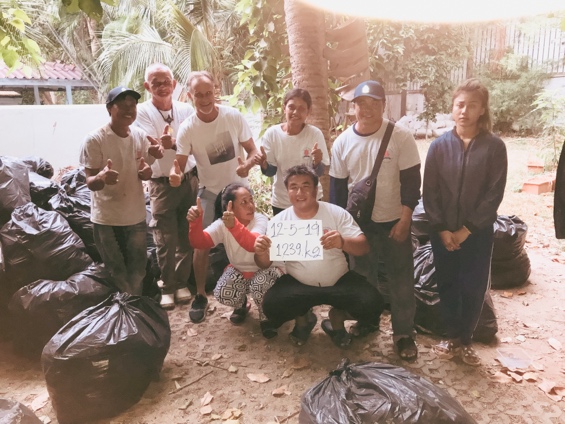
To fund POP, Starboard placed an internal tax on their products. Each step of every board put a few dollars into the POP account. The fund pays locals to clean their beaches. They sort the trash, recycle what they can and dispose of the rest.
Not only does this program leave the beach a better place, it empowers the community through employment and pride.
And our Spotlight readers just heard about a public company that is revolutionizing the plastic recycling industry.
Although Starboard is a private company, it shows exactly the kind of leadership we like to see at Mangrove Investor.
For the Good
Michael Nichols
Numbers to Know
500 Million
The number of straws used in the world each day. (5 Gyres)
5 Trillion
More than 5 trillion pieces of plastic are already floating in our oceans. (National Geographic)
Number 1
Broken bottles, plastic toys, food wrappers … any of these items can be found on the beach but there is one item more common than any other: cigarette butts. (NOAA)
What’s New in Sustainable Investing
Can corporate boards rise to the sustainability challenge?
Among boards of directors, there’s a yawning gap between concern and competence. (Green Biz)
Tesla breaks ground on massive lithium plant
Tesla on Monday broke ground on a Texas lithium refinery that CEO Elon Musk said should produce enough of the battery metal to build about 1 million electric vehicles. (Reuters)
Video Of The Week
What do elephant tusk have to do with plastic?
The history of the invention of plastic, and how the material ushered in what became known as the plastics century.



